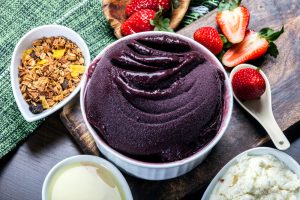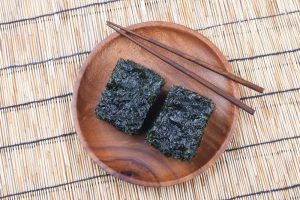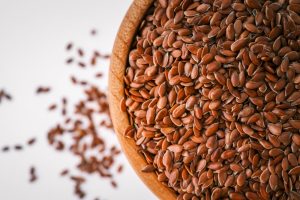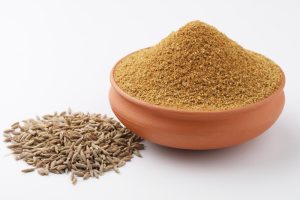If you're looking to lose weight, what you add to your water can make a real difference. Ingredients like lemon, apple cider vinegar, ginger, cucumber, and chia seeds can help curb appetite, support digestion, and boost hydration—all of which support weight loss when combined with a healthy routine.
Keep reading to learn exactly how each one works and how to use them effectively.
Why What You Add to Your Water Matters for Weight Loss
Plain water is a key part of any weight loss strategy, but adding the right ingredients can turn it into a more powerful tool for appetite control, digestion, and metabolism support.
The goal isn’t to create magic potions—it’s to make small, smart changes that support better habits throughout your day.
While staying hydrated already helps regulate hunger signals and keeps your metabolism functioning well, certain natural additions can push those benefits even further.
For example, adding lemon can increase satiety and enhance fat metabolism thanks to its vitamin C and citrus flavonoids.
Similarly, apple cider vinegar may help blunt blood sugar spikes after meals, making it easier to avoid crashes that lead to cravings.
One of the most practical benefits of infused water is that it makes water more enjoyable to drink.
This is a small shift that pays off—if water tastes better, you're more likely to choose it over soda or juice.
This alone can quietly eliminate hundreds of calories over time.
Plus, many of these add-ins offer subtle flavor without sugar, helping you stay on track without feeling like you’re constantly restricting yourself.
There’s also the role of timing.
Drinking certain infused waters before meals can promote feelings of fullness, which naturally reduces how much you eat.
Lemon water or chia water before a meal, for example, can reduce portion sizes without you having to think too hard about it.
It’s a passive win in a daily routine.
Lastly, these ingredients often come with digestive benefits that can support weight management in indirect but important ways.
Ginger may help reduce bloating and improve gut function, while cucumber can soothe digestion and provide gentle hydration throughout the day.
These aren’t flashy results, but they contribute to consistency—the backbone of sustainable weight loss.
Lemon Water: A Simple Way to Cut Cravings and Eat Less
Lemon water has become a popular go-to for people trying to lose weight—and for good reason.
It’s a simple, inexpensive habit that can help you drink more water, feel full before meals, and support your body’s natural fat-processing functions without adding calories.
One of the first and most noticeable benefits is that lemon makes water taste better.
When water tastes more refreshing, you're likely to drink more of it throughout the day, which directly supports weight loss by improving hydration.
Proper hydration keeps your hunger cues in check—what often feels like hunger is actually thirst.
Adding lemon just gives you an easier way to stay ahead of that confusion.
Lemon is also rich in vitamin C and citrus flavonoids, which do more than support your immune system.
These compounds play a role in fat metabolism and may help your body more efficiently break down and mobilize fat for energy.
While this won’t lead to dramatic fat loss on its own, it complements a healthy diet and regular physical activity.
Drinking lemon water about 30 minutes before meals can also help you feel fuller, which means you're likely to eat less when you sit down to eat.
This strategy is especially helpful if you tend to overeat at lunch or dinner.
It sets a pause between thirst and hunger, helping your body prepare for digestion and reducing the urge to overindulge.
To make it, squeeze the juice of half a fresh lemon into 250 to 500 ml of cold or warm water.
Both temperature options work fine—it really comes down to preference.
Some people find warm lemon water easier on the stomach first thing in the morning, while others prefer it chilled and refreshing.
The best time to drink lemon water is in the morning after waking up or about half an hour before meals.
Either approach can support appetite regulation and hydration.
However, because lemon is acidic, it can gradually wear down tooth enamel if you drink it often.
To protect your teeth, try rinsing your mouth with plain water afterward, or drink through a straw to reduce contact with your teeth.
While lemon water is generally safe for most people, it might not be ideal if you have sensitive teeth, active acid reflux, or other digestive sensitivities.
If you fall into one of those categories, consider using a smaller amount of lemon or switching to another infusion like cucumber or ginger.
Apple Cider Vinegar: Appetite Control with a Tangy Kick
Apple cider vinegar (ACV) has built a reputation as a staple in natural wellness routines, especially for weight management.
While it’s not a miracle solution, consistent use of diluted ACV may help reduce appetite, improve blood sugar control, and support modest fat loss—all through a simple daily habit.
The key component behind these benefits is acetic acid, a compound shown in studies to influence several metabolic processes.
One of the most notable effects is appetite suppression.
People who consume ACV before meals often report feeling fuller, which can lead to reduced calorie intake without the need for strict dieting.
For those trying to manage portion sizes or reduce snacking, this effect alone can be a valuable tool.
ACV has also been linked to improved insulin sensitivity, which is important for managing blood sugar spikes and crashes that can drive hunger.
When your blood sugar stays more stable, you're less likely to crave quick-fix foods like sweets or processed snacks.
Over time, this helps create a more stable eating pattern—something many people struggle with when trying to lose weight.
Some studies have also noted modest reductions in body fat and weight when participants consumed 15–30 ml of vinegar daily as part of a balanced diet.
The changes are not dramatic, but the benefit lies in ACV's ability to subtly support long-term weight control rather than rapid loss.
To use it effectively, mix 1 to 2 tablespoons (15–30 ml) of raw, unfiltered apple cider vinegar into 250 to 500 ml of water.
Drinking this blend in the morning before food tends to work best for appetite management and digestive support.
For flavor and an added metabolic boost, you can include a squeeze of lemon or a touch of honey—just keep the sugar minimal.
Always dilute ACV properly. It’s highly acidic, and drinking it straight can damage your tooth enamel or irritate your throat and stomach lining.
Even when diluted, it’s a good idea to rinse your mouth with water afterward or use a straw to protect your teeth.
ACV isn't suitable for everyone.
If you’re taking insulin, diuretics, or blood pressure medications, check with your doctor before making it a regular part of your routine.
It may interact with certain drugs or amplify their effects.
And if you notice digestive discomfort, heartburn, or nausea, reduce the amount or take a break and reassess.
Used correctly, ACV can be a valuable addition to your water routine—not because it melts fat instantly, but because it helps support the kind of appetite control and metabolic balance that makes sticking to a healthy diet much more manageable.
Ginger-Infused Water: Support Digestion and Blood Sugar

Ginger isn’t just for cooking or settling an upset stomach—it also works surprisingly well as a functional water infusion, especially if you're aiming to manage appetite, improve digestion, or support stable energy levels throughout the day.
Used consistently, ginger water can become a helpful part of your weight management strategy.
The active compounds in ginger, gingerols and shogaols, are what give it both its bite and its benefits.
These plant chemicals have been shown to support digestive efficiency by speeding up the movement of food through the digestive tract.
This can ease bloating, reduce gas, and leave you feeling lighter after meals—particularly helpful if you struggle with sluggish digestion or post-meal discomfort.
Beyond digestion, ginger also plays a role in blood sugar regulation.
Research suggests it can help stabilize glucose levels, reducing the spikes and crashes that often lead to cravings and overeating.
This makes it especially useful when consumed before meals or during long stretches between meals when energy dips tend to occur.
There’s also early evidence suggesting ginger may help reduce belly fat over time, likely by influencing how the body stores fat and how efficiently it burns it.
While results vary from person to person, ginger’s combined effects on digestion, appetite, and metabolism can quietly support fat loss when paired with a balanced lifestyle.
To make ginger-infused water, simply slice a 2 cm piece of fresh ginger (no need to peel if it’s well washed), and steep it in hot water for 5 to 10 minutes.
Let it cool before drinking, or serve warm depending on your preference.
For an added boost, try combining it with lemon juice or a green tea bag—both ingredients complement ginger's effects and add additional flavor.
You can drink this infusion once or twice daily, such as in the morning and again before a meal.
If you're new to ginger or have a sensitive stomach, start with a smaller piece and adjust gradually.
While it's generally well-tolerated, some people may experience mild heartburn or digestive upset at higher amounts.
It’s also worth noting that ginger may thin the blood slightly, so if you're pregnant or taking blood-thinning medications, check with your doctor before adding it to your daily routine.
Incorporating ginger water into your day is a small, easy shift that can yield noticeable benefits over time—not just in how you feel, but in how you manage hunger, energy, and digestion from one meal to the next.
Cucumber and Mint Water: Easy Hydration That Fills You Up
If you’re trying to cut calories without constantly feeling deprived, cucumber water is one of the easiest habits you can adopt.
It’s light, refreshing, and helps you stay hydrated and satisfied—without adding anything heavy to your diet.
Cucumber is made up of about 96% water, which makes it incredibly effective at keeping you full and hydrated at the same time.
When you’re well-hydrated, you’re less likely to confuse thirst with hunger, which can reduce unnecessary snacking throughout the day.
The water content combined with its subtle flavor makes cucumber a smart alternative to plain water, especially if you're trying to move away from sugary drinks or flavored sodas.
Beyond hydration, cucumber brings a few added nutritional perks. It contains potassium, which helps balance sodium levels and support healthy blood pressure—important for overall cardiovascular health.
You'll also get a small dose of vitamin K, which plays a role in bone and joint health, and antioxidants, which help reduce oxidative stress in the body.
While the amounts aren’t large, they add up when cucumber becomes a regular part of your day.
Preparing cucumber water is simple. Just slice 5 to 6 thin rounds of cucumber and drop them into a 1-liter pitcher of cold water. Let it sit for 1 to 2 hours to allow the flavor to infuse.
You can leave the skin on if you rinse the cucumber well beforehand, as the skin contains some of the nutrients and adds a bit more flavor.
To boost the taste and benefits even further, try adding fresh mint, which aids digestion and adds a cool, clean finish.
A few sprigs are all you need.
For a citrus twist, include a few lemon or lime slices—this not only brightens the flavor but adds more electrolytes and digestive support.
One of the best parts about cucumber and mint water is how seamlessly it fits into your routine.
You can sip it throughout the morning or afternoon, refill the pitcher a couple of times, and keep cravings at bay while staying refreshed.
It’s especially helpful in warm weather, when you might reach for sugary drinks out of habit.
In terms of safety, there’s almost no downside.
Just make sure to wash the cucumber thoroughly, especially if you’re using the skin. Organic cucumbers are ideal, but if not available, a quick rinse or scrub will do.
Cucumber and mint water may seem simple, but it offers a surprisingly effective way to support hydration, reduce bloating, and stay full—all without adding a single calorie to your day.
Chia Seed Water: Natural Appetite Suppressant in a Glass
Chia seed water might not look pretty—hence the nickname “tadpole water”—but it’s one of the most practical, natural ways to help manage your appetite.
Thanks to their ability to absorb water and expand, chia seeds create a gel-like texture that slows digestion and keeps you feeling full for longer.
When soaked in water, chia seeds can absorb up to 10 times their weight in liquid, forming a thick, pudding-like consistency.
This expansion triggers satiety signals in the body, which can reduce the urge to overeat during meals.
That’s why drinking chia water about 30 minutes before lunch or dinner can lead to naturally smaller portion sizes, without you needing to force it.
Nutritionally, chia seeds are loaded with soluble fiber, which helps regulate digestion and keeps things moving through the gut at a steady pace.
They also contain plant-based omega‑3 fatty acids, protein, and antioxidants—all of which contribute to better metabolic health.
The combination of fiber and fat slows down how quickly food is digested, meaning fewer spikes and crashes in blood sugar levels throughout the day.
To make chia seed water, start with 1 teaspoon of dry chia seeds and stir them into 250 ml (about 1 cup) of water.
Let it soak for 15 to 30 minutes, or even overnight if you prefer to prep ahead.
Be sure to stir again just before drinking to redistribute the seeds evenly.
Some people add a bit of lemon or cucumber for flavor, though it’s optional.
If you’re new to chia seeds, it’s smart to start with ½ teaspoon and work your way up.
Because of their high fiber content, they can cause bloating or digestive discomfort if you jump in too quickly or don’t hydrate them thoroughly.
Also, it’s essential to always fully hydrate chia seeds before drinking.
Eating them dry or partially soaked can pose a choking hazard, especially if you don’t drink enough water with them.
One serving per day—ideally before your main meal—is enough to get the benefits without overdoing it.
And unlike many other appetite-control options, chia seed water is natural, inexpensive, and easy to prepare ahead of time.
With regular use, it can help you eat less, stay full longer, and support more consistent energy levels—all useful pieces in the bigger picture of long-term weight management.
Practical Daily Routine: Putting It All Together
Knowing what to add to your water is helpful—but putting it into a daily rhythm is where the real progress happens.
With just a few small tweaks to your routine, you can create a low-effort habit loop that supports hydration, appetite control, and digestion throughout the day.
Start your morning with something that wakes up your system and sets the tone for mindful eating.
A glass of water infused with lemon and apple cider vinegar is a great way to do this.
The acetic acid in vinegar helps control appetite and blood sugar, while lemon adds a refreshing flavor and supports digestion.
If ACV isn’t your thing, a warm cup of ginger water works just as well—especially if your mornings are slower and you want something gentler on the stomach.
As the day goes on, keeping hydration steady is key.
This is where cucumber and mint water really shines.
Make a pitcher in the morning and sip it throughout the late morning and afternoon.
It’s not only refreshing and easy to drink but also helps replace less healthy choices like soda or juice without feeling like a downgrade.
The volume and flavor help you stay full and alert without relying on caffeine or snacks.
About 30 minutes before lunch or dinner, prep a glass of chia seed water.
This is your pre-meal appetite buffer. Because chia expands and slows digestion, it reduces how much food you’re likely to eat and helps prevent that post-meal slump.
Make it part of your routine so it feels automatic, not like an extra chore.
You don’t have to follow this sequence rigidly—feel free to swap ingredients based on what your body responds to best.
Some days you might prefer lemon and ginger in the morning, other days you may want to skip ACV.
The key is consistency and variety.
Rotating combinations like ginger + lemon, or cucumber + lime + mint, can keep things interesting and improve long-term adherence.
By spreading these beverages across your day in a thoughtful way, you naturally align with your body’s hunger cues, hydration needs, and digestion rhythms.
It’s a simple framework that fits easily into most routines—and when paired with balanced meals and physical activity, it can quietly contribute to steady, realistic weight loss.
Conclusion
Adding the right ingredients to your water can make a real impact on how you manage hunger, hydration, and overall energy throughout the day.
Simple options like lemon, ginger, cucumber, ACV, and chia don’t just support weight loss—they make sticking to healthy habits easier.
Start small, stay consistent, and let these easy changes work in your favor.







